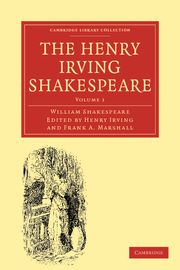SHAKESPEARE AS A PLAYWRIGHT
Published online by Cambridge University Press: 29 August 2010
Summary
I daresay that it will appear to some readers a profanation of the name of Shakespeare to couple with it the title of playwright. But I have chosen this title for my introduction because I am anxious to show that with the mighty genius of the poet was united, in a remarkable degree, the capacity for writing plays intended to be acted as well as read. One often finds that the very persons who claim most to reverence Shakespeare, not only as a poet but also as a dramatist, carry that reverence to such an extent that they would almost forbid the representation of his plays upon the stage, except under conditions which are, if not impossible, certainly impracticable.
Shakespeare was one of the most practical dramatists which the world has ever seen, and this notwithstanding that he lived in an age when the drawbacks which existed to the proper representation of stage plays were very many. It must not be thought that in claiming for him this quality one necessarily detracts, in the slightest degree, from his greater qualities as a poet. But surely the end of all plays is to be acted, and not to be simply read in the study. It is no reproach against a dramatist, whose object it is to produce plays, that he should prove himself a good playwright; for that is only equivalent to saying that he does his work well. Indeed there is no reason why we should praise him as a dramatist if his plays will not bear acting.
- Type
- Chapter
- Information
- The Henry Irving Shakespeare , pp. xvii - xxivPublisher: Cambridge University PressPrint publication year: 2009First published in: 1888

